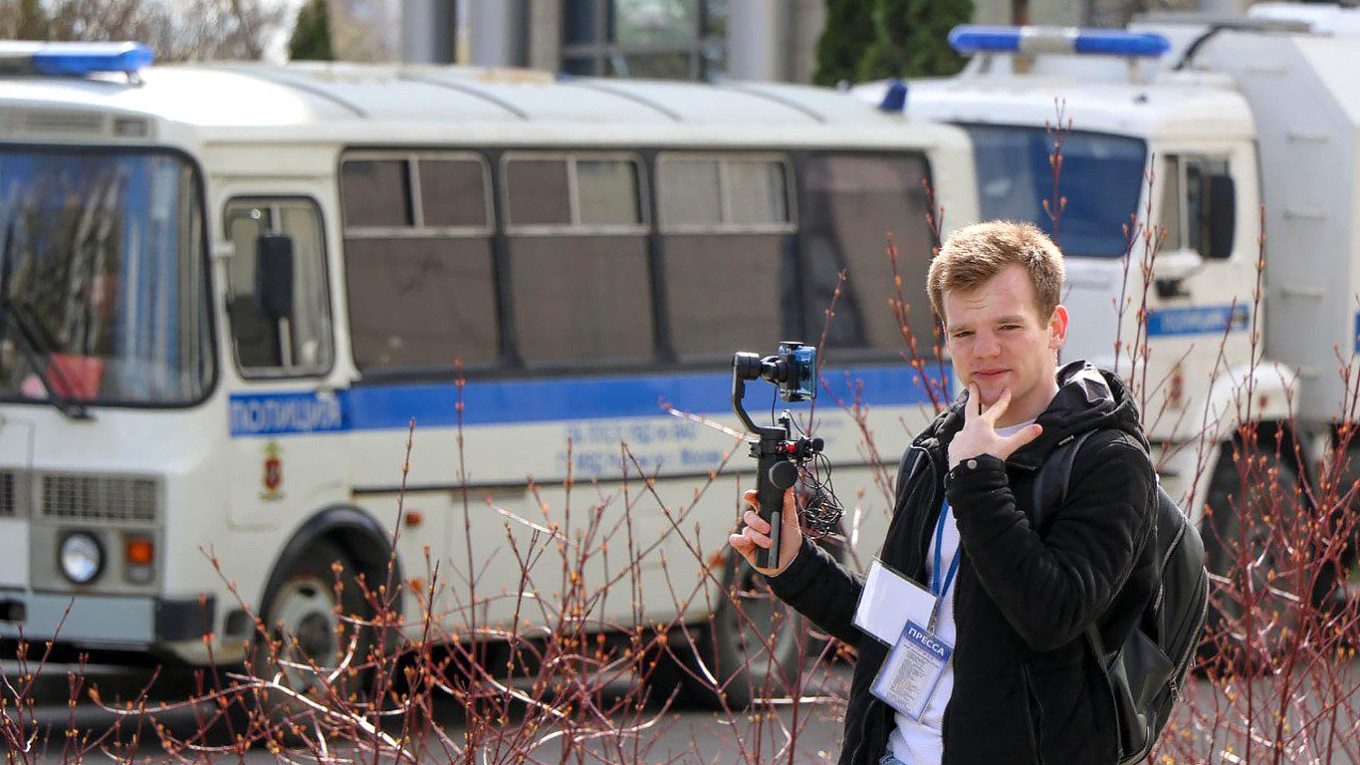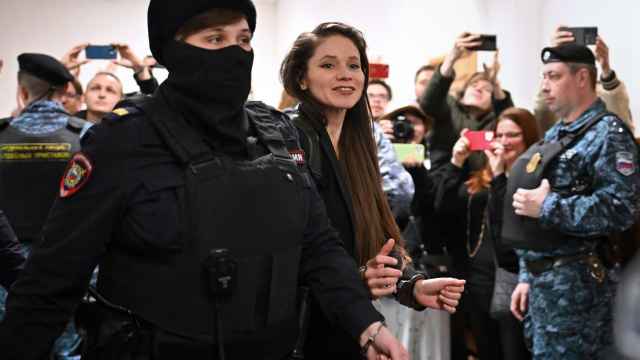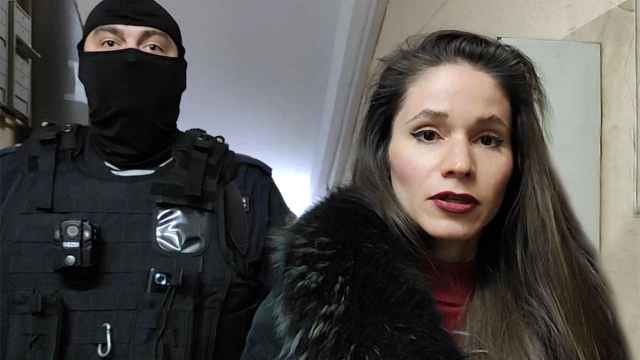A Moscow court on Tuesday remanded journalist Artyom Kriger until mid-August on charges related to the “extremism” case against late Kremlin critic Alexei Navalny, his employer said.
Kriger, who works for the independent SOTAvision news outlet, was accused of “participation in an extremist community” after his Moscow apartment was searched by police on Tuesday morning and his personal electronic devices were confiscated.
Moscow’s Basmanny District Court ruled to place him in pre-trial detention until Aug. 18.
SOTAvision denied the accusations against the journalist, saying that “Kriger was never an activist, he was not a member of any parties or movements.”
“There is no doubt that Artem did not cooperate with FBK, at least in order to avoid exposing himself and his colleagues to obvious risks under the conditions of public journalistic work — he and his voice were always on air,” SOTAvision said in a statement on Tuesday.
Russian authorities designated Navalny’s activist network, including the disbanded Anti-Corruption Foundation (FBK), as “extremist” in 2021, placing employees, volunteers and supporters at risk of criminal prosecution.
If found guilty of participating in an “extremist” organization, Kriger faces up to six years in prison.
Another SOTAvision journalist, Antonina Favorskaya, was arrested in March on the same charges after she was accused of “collecting material, preparing and editing videos for FBK.”
Last month, Moscow’s Basmanny District Court extended her arrest until Aug. 3. If found guilty of participating in an “extremist” organization, she also faces up to six years in prison.
The photojournalist had covered Navalny’s court hearings and filmed the last known video of the Kremlin critic before his death at an Arctic penal colony on Feb. 16.
Navalny’s spokeswoman Kira Yarmysh denied that Favorskaya had published “anything” for FBK.
Last year, Kriger’s uncle and Russian opposition activist Mikhail Krieger was sentenced to seven years in prison on charges of “justifying terrorism” and “inciting hatred” that he and his supporters argue is punishment for his opposition to the war in Ukraine.
A Message from The Moscow Times:
Dear readers,
We are facing unprecedented challenges. Russia's Prosecutor General's Office has designated The Moscow Times as an "undesirable" organization, criminalizing our work and putting our staff at risk of prosecution. This follows our earlier unjust labeling as a "foreign agent."
These actions are direct attempts to silence independent journalism in Russia. The authorities claim our work "discredits the decisions of the Russian leadership." We see things differently: we strive to provide accurate, unbiased reporting on Russia.
We, the journalists of The Moscow Times, refuse to be silenced. But to continue our work, we need your help.
Your support, no matter how small, makes a world of difference. If you can, please support us monthly starting from just $2. It's quick to set up, and every contribution makes a significant impact.
By supporting The Moscow Times, you're defending open, independent journalism in the face of repression. Thank you for standing with us.
Remind me later.





